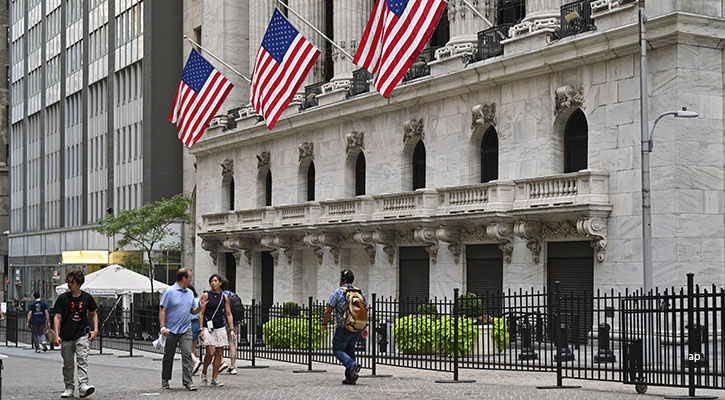
We have raised wide-moat Tencent’s fair value estimate by 4% to HKD 623 per share (USD 80) from HKD 597 (USD 77) after accounting for the increased market valuation of Tencent’s investments and HKD 6 increase associated with rolling our model. After Tencent’s shares price decline in the aftermath of President Trump’s executive order calling for a ban on WeChat, the shares are back to an attractive level as we assume the ban will only apply to the overseas version of WeChat and U.S. revenue represented less than 2% of Tencent’s revenue.
Tencent is on track to meet our full-year estimates which are unchanged. Our 2020 revenue and net income is 1% lower and 1% higher than CapIQ consensus as of Aug. 13 respectively. In the second quarter, revenue was up 29% year over year, beating CapIQ consensus by 2%, net profit excluding net gains and losses from investees, impairment provisions and reversals was CNY 25.0 billion versus net income excluding exceptional items consensus of CNY 29.4 billion. Operating margin excluding net other gains and interest income was 29.2% in the first quarter and 25.2% in the second quarter, on track to meet our margin forecast of 26.5% for 2020.
Management emphasized that the overseas version WeChat and the mainland China version Weixin are two different products and the U.S. president’s executive order is focused on WeChat, not other businesses in the U.S. We reiterate our belief that the executive order refers to WeChat as the app that has over one billion users worldwide, which means that the government is probably referring to both WeChat and Weixin. Management also said the executive order specifies the U.S. jurisdiction, so Tencent doesn’t think there would be an impact on advertising revenue in China.
A Bloomberg news article on Aug. 12 reported that WeChat and TikTok will be on the agenda for the next U.S-China trade talks with a virtual meeting taking place as soon as this week. The risk and scope of the ban on WeChat could depend on these negotiations in our view.
One of Tencent’s international expansion strategies amid this period of heightened geopolitical tension is that Tencent will work with local partners in many cases and create a win-win partnership. We think examples of these partnerships include Tencent developing Call of Duty Mobile with its strong mobile game development expertise while Activision Blizzard supplies the IP, and the two parties publish the game in different regions. This would create more considerations of local business interests and reduce the probability for foreign governments to take action against Tencent in our view.
Management mentioned the international market is large with many countries, companies and products with regards to international expansion, we think there are still whitespace geographically so Tencent can avoid regions with higher geopolitical risks and products with national security and privacy concerns. The U.S.’ Foreign Investment Risk Review Modernization Act of 2018, or FIRRMA, which took effect Feb. 13, 2020, expanded the authority of the Committee on Foreign Investment in the United States, or CFIUS, to review, among other things, certain noncontrolling foreign investments in a U.S. business which “maintains or collects sensitive personal data of United States citizens that may be exploited in a manner that threatens national security.” We think Chinese Internet companies’ investment in the U.S. technology sector is likely to fall as a result.
In the second quarter, gross margin for the fintech and business services segment continued to edge up with a 4.9 percentage point improvement compared with the year-ago quarter. This is helped by the resumption of high-margin interest income at the central bank, reduced marketing expenses due to more rational competition, and contribution of higher-margin loan and wealth management products. We think positive margin trend in this segment will continue in the long term.
The negative margin impact from an expected recovery in the lower-margin media advertising in the near future will be offset by continuous increases in the higher-margin social and others advertising business in our view. In the quarter, social and others advertising revenue was up 27%, helped by the mobile advertising network and more inventories and impressions in Weixin Moments which has higher margin. The ad network contributed more of Tencent’s advertising revenue year-over-year growth compared with Weixin Moments. The eCPM for ad network in China has increased to high-single digits to low-double digits with an increase in the mix of video ad that has higher eCPM. Improved competitiveness in advertising technology at Tencent also helps in our view. As management delays the release of certain variety shows and dramas to the second half, we expect to see a sequential year-over-year increase in media advertising.
©2020 Morningstar. All rights reserved. The information, data, analyses and opinions presented herein do not constitute investment advice; are provided as of the date written, solely for informational purposes; and subject to change at any time without notice. This content is not an offer to buy or sell any particular security and is not warranted to be correct, complete or accurate. Past performance is not a guarantee of future results. The Morningstar name and logo are registered marks of Morningstar, Inc. This article includes proprietary materials of Morningstar; reproduction, transcription or other use, by any means, in whole or in part, without prior, written consent of Morningstar is prohibited. This article is intended for general circulation, and does not take into account the specific investment objectives, financial situation or particular needs of any particular person. Investors should consult a financial adviser regarding the suitability of any investment product, taking into account their specific investment objectives, financial situation or particular needs, before making any investment decisions. Morningstar Investment Management Asia Limited is licensed and regulated by the Hong Kong Securities and Futures Commission to provide investment research and investment advisory services to professional investors only. Morningstar Investment Adviser Singapore Pte. Limited is licensed by the Monetary Authority of Singapore to provide financial advisory services in Singapore. Either Morningstar Investment Management Asia Limited or Morningstar Investment Adviser Singapore Pte. Limited will be the entity responsible for the creation and distribution of the research services described in this article.










.png)









